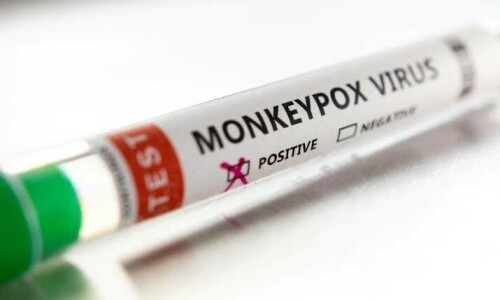The mpox outbreak is not another Covid-19, the World Health Organisation (WHO) said on Tuesday, because much is already known about the virus and the means to control it.
While more research is needed on the Clade 1b strain which triggered the UN agency into declaring a public health emergency of international concern (PHEIC), the spread of mpox can be reined in, the WHO’s European director Hans Kluge said.
In July 2022, the WHO declared a PHEIC over the international outbreak of the less severe Clade 2b strain of mpox, which mostly affected gay and bisexual men. The alarm was lifted in May 2023.
“Mpox is not the new Covid,” Kluge insisted.
“We know how to control mpox. And, in the European region, the steps needed to eliminate its transmission altogether,” he told a media briefing in Geneva, via video link.
“Two years ago, we controlled mpox in Europe thanks to the direct engagement with the most affected communities.
“We put in place robust surveillance; we thoroughly investigated new cases contacts; and we provided sound public health advice.
“Behaviour change, non-discriminatory public health action, and mpox vaccination contributed to controlling the outbreak.”
Kluge said the risk to the general population was low.
“Are we going to go in lockdown in the WHO European region, it’s another Covid-19? The answer is clearly: ‘no’,” he said.
Kluge said the predominant route of transmission remained close to skin-to-skin contact.
But he said it was possible that someone in the acute phase of mpox infection, especially with blisters in the mouth, may transmit the virus to close contact by droplets, in circumstances such as in the home or hospitals.
“The modes of transmission are still a bit unclear. More research is required.”
WHO spokesperson Tarik Jasarevic said the WHO was not recommending the use of masks.
“We are not recommending mass vaccination. We are recommending to use vaccines in outbreak settings for the groups who are most at risk,” he added.
The WHO declared an international health emergency on August 14, concerned by the rise in cases of Clade 1b in the Democratic Republic of Congo and its spread to nearby countries.















































Dear visitor, the comments section is undergoing an overhaul and will return soon.